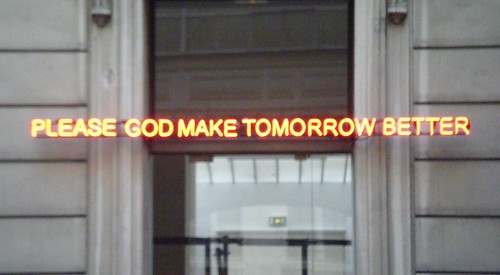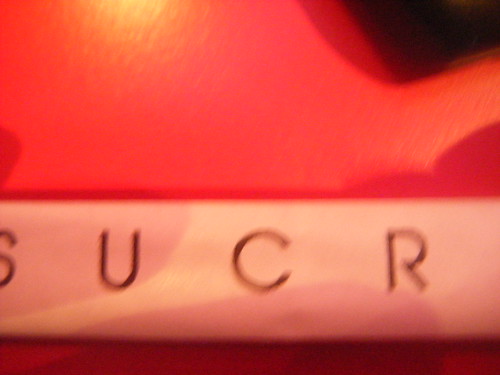 Throughout the summer months, I slaved away completing a research project for my Masters, which looked into how people justify buying (debatably) unnecessary luxury fashion brands in the recession.
Throughout the summer months, I slaved away completing a research project for my Masters, which looked into how people justify buying (debatably) unnecessary luxury fashion brands in the recession.Since the credit crunch cast an unwelcome cloud over our spending, we’ve all had to cut back in one way or another. Some of us have vowed to ration our cocktail consumption; others have forgone their summer break. A wide number of leisure sectors have noted an inevitable decrease in sales; however the luxury fashion industry has experienced sustained and even rising profits since the recession hit.
The power of the fashion world is globally palpable, and this is a continuously increasing entity. A prime example comes from the online luxury fashion store Net-a-Porter, which has doubled in size annually since it opened in 2000. It has been seen that 2009, arguably the lowest trough of this recession, has kept on trend. According to the BrandZ Top 100 most valuable global brands, fashion labels Hermes, Gucci and Rolex are still experiencing brand value growth in double figures. Other reports show that Burberry has seen an increase of 12% in sales of the first quarter of this financial year and Mulberry’s sales are up 21%. The discrepancy here is obvious. Our purse strings are being forcibly tightened due to the current economic climate; however the purse that these strings are attached to is a brand new patent Miu Miu.
I studied vast amounts of literature that outlined possible motivations to buy luxury brands. Generally these fitted into three categories: individual motivations (including purchasing for pleasure and hedonism and purchasing to communicate one’s character), functional motivations (including purchasing for higher quality and uniqueness) and social motivations (purchasing for ostentatious reasons). From carrying out detailed research in the luxury fashion industry and consumer views, I predicted that both individual and functional motivations would be considerably more powerful than social motivations in the credit crunch as buying overtly flashy and expensive fashion goods is now being deemed ‘distasteful’.

I surveyed over a hundred people across twenty two countries, all of whom still regularly purchase luxury fashion brands. My results were as expected. Functional dimensions were found to be key motivations to purchase luxury fashion brands in the recession, with high quality being the most prominent motive, and the ‘individual’ motivation of buying for hedonistic reasons was still present. It appears that buying luxury fashion brands to be showy and ostentatious have been banished, with people caring less about what others think. The current design and marketing activities of concerned brands mirrors my findings, by enhancing functional and individual/experiential benefits and deleting anything pretentious.
My study infers that the meaning of luxury now holds a utilitarian definition of high quality and value, getting better produce for your money, which would validate why people are still purchasing luxury fashion brands in the recession. However, perusing the ever-busy Selfridges last week started to get me thinking. As much as it may be true that luxury fashion brands use better fabrics with more flattering cuts, is this really the reason we buy them? No one would admit to purchasing something because of how it made others view them, or because wearing an expensive brand communicated something positive about them, but I’m speculative that our love of buying designer labels has much more to do with a deluxe desire and the connotations of pricey fashion labels. I think people may be justifying their spending by saying it’s due to high quality and durability, but personally I think we buy designer for what it means, and our ‘rational’ justifications are to diminish the guilt we feel every time we dismissively pin up our gas bill, reach for our gorgeous-couldn’t-live-without Burberry trench and make a sharp exit.
























No comments:
Post a Comment